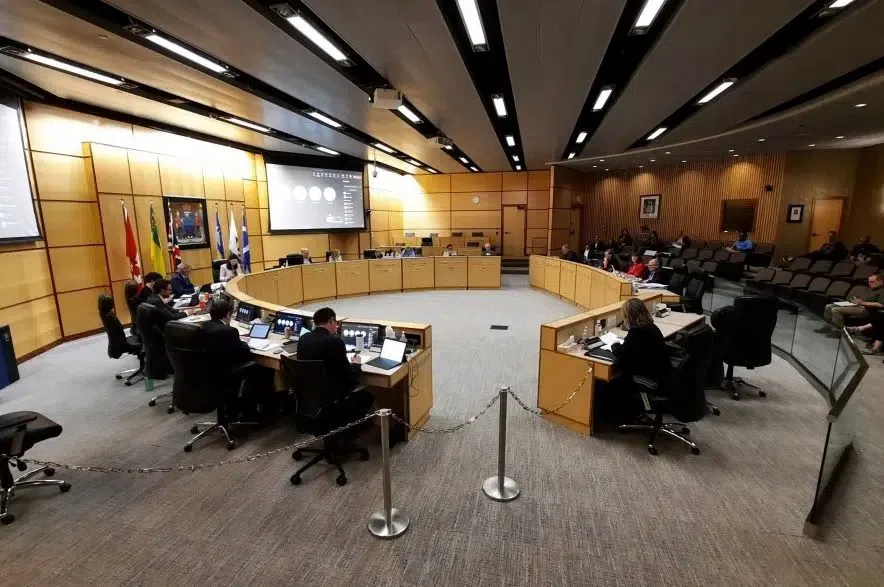Two days after the board of directors of Regina Exhibition Association Limited resigned, city council will discuss potential replacements.
A special council meeting is to be held Friday at 3 p.m., with a goal of filling vacancies on the REAL board on an interim basis. According to the agenda, the meeting was requested by six members of city council.
Administration is recommending the appointments of five people to the board as voting directors: City manager Niki Anderson; Barry Lacey, the city’s executive director of financial strategy and sustainability; Ly Pham, the chief of staff to the city manager; Jeff May, the city’s manager of sport facilities and special events; and Jennifer Johnson, the city’s executive director of corporate services.
Their terms would run from Friday to July 31, or until their successors are appointed.
“All recommended nominees are employees of the City of Regina,” said a report from Anderson’s office. “They have been selected by Administration as employees whose expertise is well-aligned with the functions of REAL, which will allow them to provide effective, interim oversight of the corporation.
“These nominees are also an appropriate fit to contribute to Administration’s work, as directed by Council, on a report regarding structural changes to the management of assets currently overseen by REAL.
“These appointments are considered interim, with a recommended term end-date that is in alignment with the delivery of Administration’s report regarding the management of REAL assets.”
The report noted that councillors can turn down the replacements put forward by administration and nominate other people to sit on the board.
Administration admitted that having city employees sit on the board of a municipal corporation isn’t ideal given the possibility that the interests of the two sides may not always align, but that couldn’t be avoided in this case.
“The current situation is unique given that all of the voting directors have resigned and so an interim appointment of City employees is proposed as a practical solution, and the risk of potential conflict is expected to be outweighed by the knowledge and experience regarding municipal objectives and policy directions that these employees will bring to the board,” the report said.
“These board members will have to exercise their duties with diligence and awareness of this duty to the municipal corporation.”
Administration also recommended that council decrease the minimum size of the board from nine directors to six and to decrease the minimum number of voting directors from seven to three.
During a meeting Wednesday, city council voted to remove the voting members of REAL’s board of directors. Soon after, the board members issued a media release saying they were resigning.
However, REAL president and CEO Tim Reid remains in his position – something about which Mayor Sandra Masters was asked during an appearance on Thursday’s Greg Morgan Morning Show.
“The board of directors determines the fate of the CEO,” Masters said. “The CEO reports to the board of directors.
“What happens next is council – which has purview over the board of directors – will appoint the interim board of directors … and they will determine what happens on a go-forward basis.”
The situation with the REAL board stems from council’s discussion about the possible dissolution of the organization.
Over the past year, REAL has been in the spotlight for its handling of Tourism Regina’s failed rebrand to Experience Regina, for a request by the board to the city to take back responsibility for the operation of the tourism body, and for its sizable budget request to address its growing debt.
A report from independent accounting firm MNP helped sway some councillors to vote for Wednesday’s motion suggesting the city continue investigating the dissolution of REAL.
Masters told Morgan the COVID-19 pandemic put the association behind the 8-ball financially since events were cancelled. Now, the city must find ways to trim the deficit.
“MNP was pretty clear (that) expenses, like overhead expenses, need to go down (and) revenue needs to go up,” Masters said, “and probably the revenue stream that probably is the easiest to tackle – because there’s not a competitive basis for it – would be fees for the court space and fees for rink space.”
The mayor said council will have to look at various possibilities to trim costs. While cutting back on utility costs may be difficult, Masters said limiting the hours of operations at various facilities could help save on utilities.
“All the options have to be on the table,” she said, “and maybe there’s private contractors that want to run some of those facilities.”











